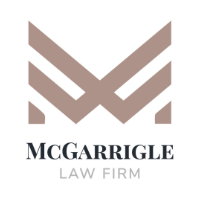Kimberton White Collar Crime Lawyer, Pennsylvania
Sponsored Law Firm
-
 x
x

Click For More Info:
-
The McGarrigle Law Firm
1500 Walnut Street, 22nd Floor Philadelphia, PA 19102» view mapWhite Collar Crime, Criminal Appeals, DUI&DWI Trial Experience & Zealous Advocacy
The Firm’s devoted attention to your individual concerns, our vast trial experience in all types of criminal matters, and our skillful advocacy will ensure that your rights are protected.
800-934-5330
Daniel McGarrigle
✓ VERIFIEDMilitary & Veterans Appeals, White Collar Crime, DUI-DWI, Criminal
Attorney Daniel McGarrigle is an aggressive advocate and experienced litigator; he has tried hundreds of cases and handled all types of criminal matte... (more)
FREE CONSULTATION
CONTACTEdward John King
Real Estate, Pharmaceutical Product, Divorce & Family Law, White Collar Crime
Status: In Good Standing Licensed: 51 Years
Joseph D. Mancano
Real Estate, Lawsuit & Dispute, White Collar Crime, Criminal
Status: In Good Standing Licensed: 45 Years
Andrew P Reeve
Mass Torts, Litigation, Lawsuit & Dispute, White Collar Crime
Status: In Good Standing Licensed: 14 Years

 Daniel McGarrigle Philadelphia, PA
Daniel McGarrigle Philadelphia, PA TestimonialsRecent Reviews
TestimonialsRecent Reviews Contact UsCall or Email
Contact UsCall or Email

